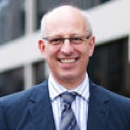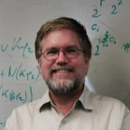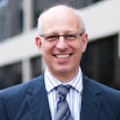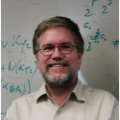Invited Speakers
Anthony Cohn
Speaker
Prof. Anthony Cohn, University of Leeds, United Kingdom
Prof. Anthony Cohn, University of Leeds, United Kingdom
Learning about Activities and Objects from Video
In this talk I will present ongoing work at Leeds on building models of video activity. I will present techniques, both supervised and unsupervised, for learning the spatio-temporal structure of tasks and events from video or other sensor data, particularly in the case of scenarios with concurrent activities. In both cases, the representation will exploit qualititive spatio-temporal relations. A novel method for robustly transforming video data to qualitative relations will be presented. I will also show how objects can be "functionally categorised" according to their spatio-temporal behaviour.
In this talk I will present ongoing work at Leeds on building models of video activity. I will present techniques, both supervised and unsupervised, for learning the spatio-temporal structure of tasks and events from video or other sensor data, particularly in the case of scenarios with concurrent activities. In both cases, the representation will exploit qualititive spatio-temporal relations. A novel method for robustly transforming video data to qualitative relations will be presented. I will also show how objects can be "functionally categorised" according to their spatio-temporal behaviour.
About the Speaker

Tony Cohn holds a Personal Chair at the University of Leeds, where he is Professor of Automated Reasoning. He is presently Director of the Institute for Artificial Intelligence and Biological Systems. His work on Knowledge Representation and Reasoning has a particular focus on qualitative spatial/spatio-temporal reasoning, the best known being the well cited Region Connection Calculus (RCC). His current research interests range from theoretical work on spatial calculi and spatial ontologies, to cognitive vision, modelling spatial information in the hippocampus, and detecting buried underground assets (e.g. utilities and archaeological residues) using a variety of geo-located sensors. He has been Chairman/President of SSAISB, ECCAI, KR inc, the IJCAI Board of Trustees and is presently Editor-in-Chief of the AAAI Press, Spatial Cognition and Computation, and the Artificial Intelligence journal. He was elected a founding Fellow of ECCAI, and is also a Fellow of AAAI, AISB, the BCS, and the IET. Work from the Cogvis project won the British Computer Society Machine Intelligence prize in 2004, and the VAULT system from his Mapping the Underworld project won a 2012 IET Innovation Award.
Henry Kautz
Speaker
Prof. Henry Kautz, University of Rochester, USA
Prof. Henry Kautz, University of Rochester, USA
nEmesis: Which Restaurants Should You Avoid Today?
Computational approaches to real-time health monitoring and analysis of epidemiological data continue to evolve rapidly. We present an end-to-end system, nEmesis, that integrates social media data with publicly accessible restaurant inspection data to detect venues with high risk of food poisoning. nEmesis finds users who are likely suffering from a foodborne illness via statistical processing of their online communication. People’s visits to restaurants are modeled from GPS data associated with the messages. As a result, we can assign each restaurant a “health score” based on the proportion of customers that fell ill shortly after visiting it. Statistical analysis reveals that our inferred health score correlates (r = 0.30) with the official inspection data from the Department of Health and Mental Hygiene (DOHMH). Finally, we investigate the joint associations of multiple factors mined from online data with the DOHMH violation scores and find that over 23% of variance can be explained by our factors. We demonstrate that readily accessible online data can be used to detect cases of foodborne illness in a timely manner. This approach may offer a low-cost way to enhance current methods to monitor food safety, and to identify potentially problematic venues in near-real time.
About the Speaker

Henry Kautz is Chair of the Department of Computer Science at the University of Rochester. He performs research in knowledge representation, machine learning, pervasive computing, and assistive technology. His academic degrees include an A.B. in mathematics from Cornell University, an M.A. in Creative Writing from the Johns Hopkins University, an M.Sc. in Computer Science from the University of Toronto, and a Ph.D. in computer science from the University of Rochester. He was a researcher and department head at Bell Labs and AT&T Laboratories until becoming a Professor in the Department of Computer Science and Engineering of the University of Washington in 2000. He joined University of Rochester in 2006. He was President (2010-2012) of the Association for the Advancement of Artificial Intelligence, and is a Fellow of the AAAI, a Fellow of the American Association for the Advancement of Science, a recipient of the IJCAI Computers and Thought Award.

